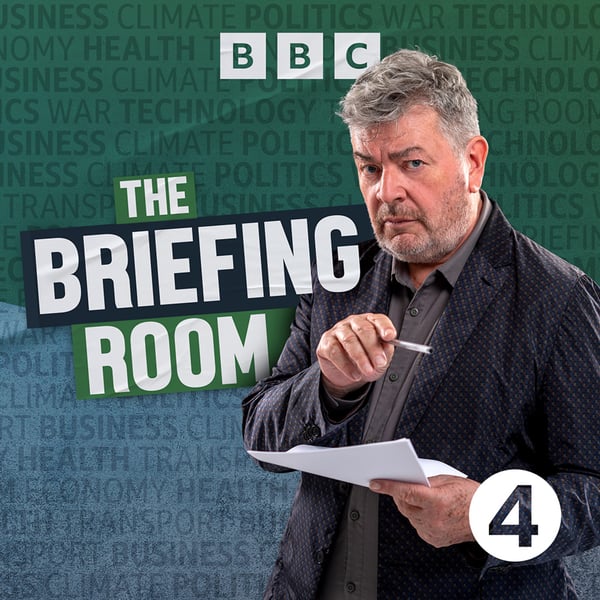Ukraine - what’s next?
The Briefing Room
BBC
4.8 • 731 Ratings
🗓️ 28 November 2024
⏱️ 30 minutes
🧾️ Download transcript
Summary
North Korean troops are fighting Ukrainians in Russia, while Ukraine has finally been permitted to use US missiles deep into Russian territory.
It’s over 1000 days since Vladimir Putin’s full scale invasion of his neighbour and the circle of those involved in the conflict seems to widen. But though the situation changes the central question doesn’t. That question being which side can best stay the bloody course of this war? Ukraine and the West or Russia and its allies? Where do things stand now?
Michael Clarke, Visiting Professor in the Department of War Studies, King’s College, London and former Director of the Royal United Services Institute Elina Ribakova, Senior Fellow at Peterson Institute of International Economics in Washington DC Defence Editor of the Economist, Shashank Joshi
Presenter: David Aaronovitch Producers: Charlotte McDonald, Kirsteen Knight and Beth Ashmead Latham Sound engineers: Rod Farquhar, Neva Missirian Editor: Richard Vadon Production Co-ordinator: Gemma Ashman
Transcript
Click on a timestamp to play from that location
| 0:00.0 | BBC Sounds, Music, radio, podcasts. |
| 0:09.7 | North Korean troops are fighting Ukrainians in Russia |
| 0:13.5 | and quite possibly being killed by US missiles |
| 0:16.7 | finally permitted by Washington to be used deep into Russian territory. |
| 0:21.4 | Meanwhile, Iranian rockets land on targets in Ukraine. |
| 0:25.9 | It's over a thousand days since Vladimir Putin's full-scale invasion of his neighbour, |
| 0:30.8 | and the circle of those involved in the conflict seems to widen. |
| 0:35.2 | But though the situation changes, the central question doesn't. |
| 0:40.1 | That question being which side can best stay the bloody course of this war, |
| 0:45.3 | Ukraine and the West, or Russia and its allies. |
| 0:49.3 | Where do things stand now? |
| 0:52.0 | Step into the briefing room and together we'll find out. |
| 0:59.4 | First, Michael Clark, visiting professor in the Department of War Studies King's College London |
| 1:04.3 | and former director of the Royal United Services Institute, gives a quick rundown on the recent story of the Ukraine conflict. |
| 1:16.0 | When the Russians first walked in on the 24th of February, 2022, what they intended, quite clearly, was a military-backed coup, because they intended to seize the government in Kiev within |
| 1:29.0 | 72 hours and then suppress any problems they had in the major eastern cities within three or four |
| 1:35.5 | weeks after that. That had to be the intention because they didn't devote enough troops to do anything |
| 1:40.5 | more. They had fewer than 190,000 troops in a territory that's the biggest |
| 1:45.6 | territory in Europe, apart from Russia itself, and a country of 44 million people. So it's far too |
| 1:51.0 | smaller force to invade the country. When we talk about a coup, most people think of it as an |
| 1:55.9 | internal struggle. And there was some sense of that in what the Russians were trying. They had a puppet government |
| 2:02.4 | ready to move in and take over. And they had at least two or three squads in Kiev, all of whom were |
... |
Please login to see the full transcript.
Disclaimer: The podcast and artwork embedded on this page are from BBC, and are the property of its owner and not affiliated with or endorsed by Tapesearch.
Generated transcripts are the property of BBC and are distributed freely under the Fair Use doctrine. Transcripts generated by Tapesearch are not guaranteed to be accurate.
Copyright © Tapesearch 2025.

